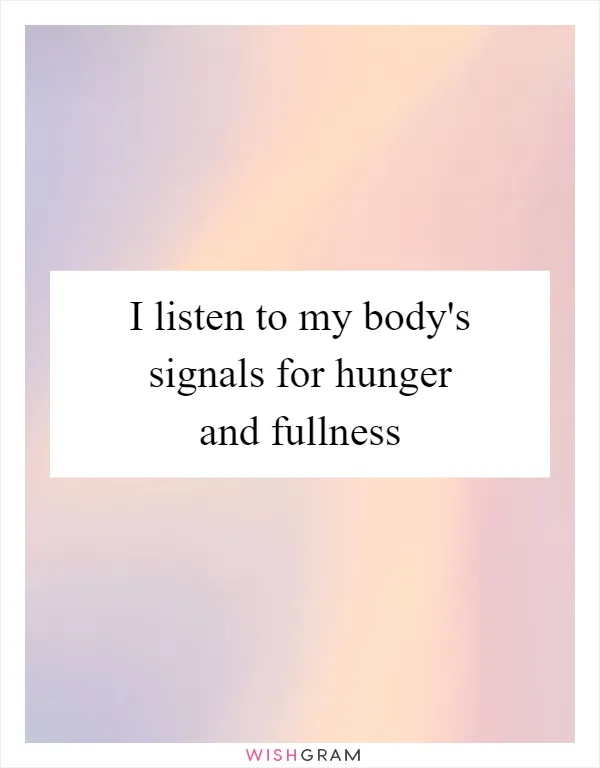I listen to my body's signals for hunger and fullness
The affirmation "I listen to my body's signals for hunger and fullness" is a powerful tool for maintaining a healthy relationship with food. When you listen to your body's signals, you are able to nourish yourself in a way that feels good and sustainable.
Many of us have been taught to ignore our body's signals and instead rely on external cues like calorie counting or strict meal plans. However, this approach can lead to feelings of deprivation and disconnection from our bodies. When you listen to your body's signals, you are able to trust yourself and make choices that feel good in the moment and in the long term.
So, what does it mean to listen to your body's signals for hunger and fullness? It means paying attention to the physical sensations in your body and using them as a guide for when to eat and when to stop. For example, when you feel hunger pangs or a growling stomach, that is a signal that your body needs nourishment. When you feel satisfied and content after a meal, that is a signal that your body has had enough.
It's important to note that listening to your body's signals is not the same as giving in to every craving or impulse. It's about finding a balance between honoring your body's needs and making choices that align with your values and goals. For example, if you are trying to eat more vegetables, you can still listen to your body's signals for hunger and fullness while also making choices that include more veggies.
One of the benefits of listening to your body's signals is that it can help you break free from the diet mentality. When you trust your body and give it what it needs, you are less likely to feel deprived or restricted. This can lead to a more positive relationship with food and a greater sense of overall well-being.
Of course, listening to your body's signals is not always easy. It can be challenging to tune out external messages about what and how much to eat. It can also be difficult to distinguish between physical hunger and emotional hunger. However, with practice and patience, you can learn to trust your body and make choices that feel good for you.
